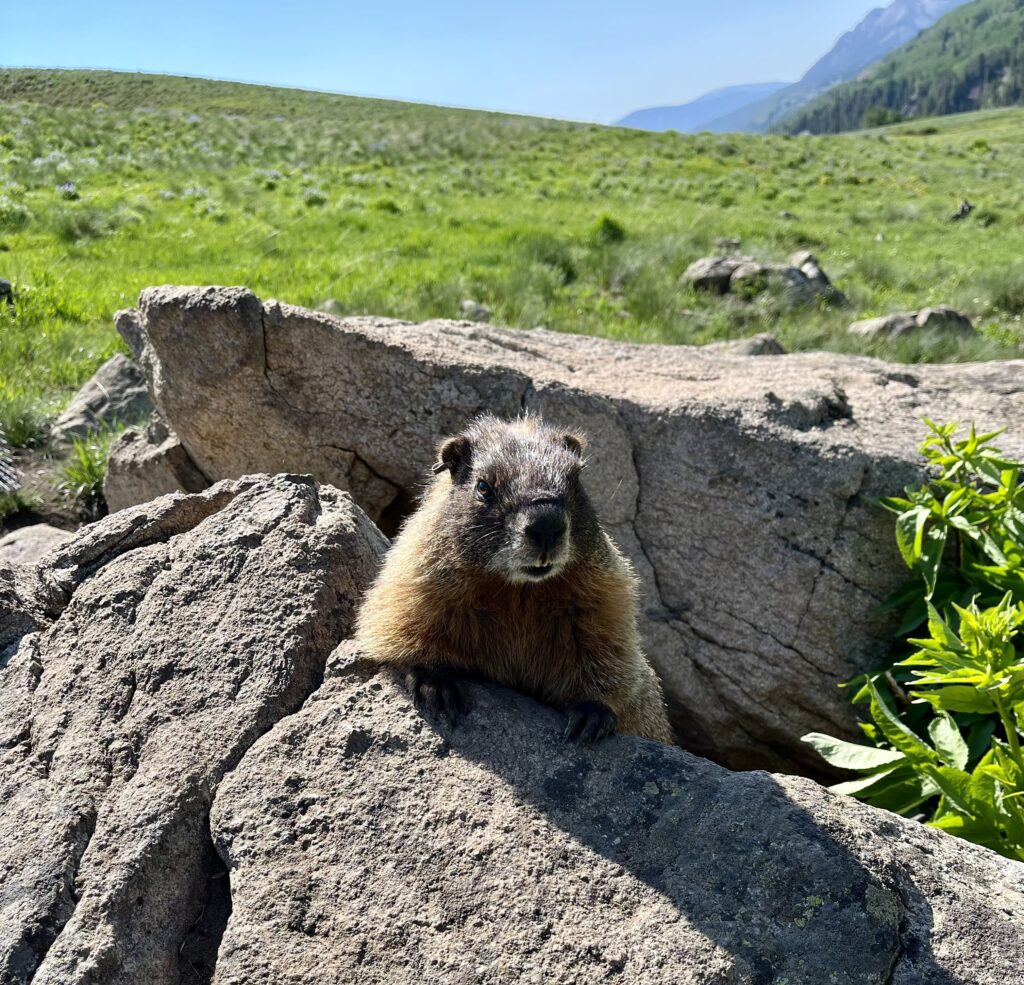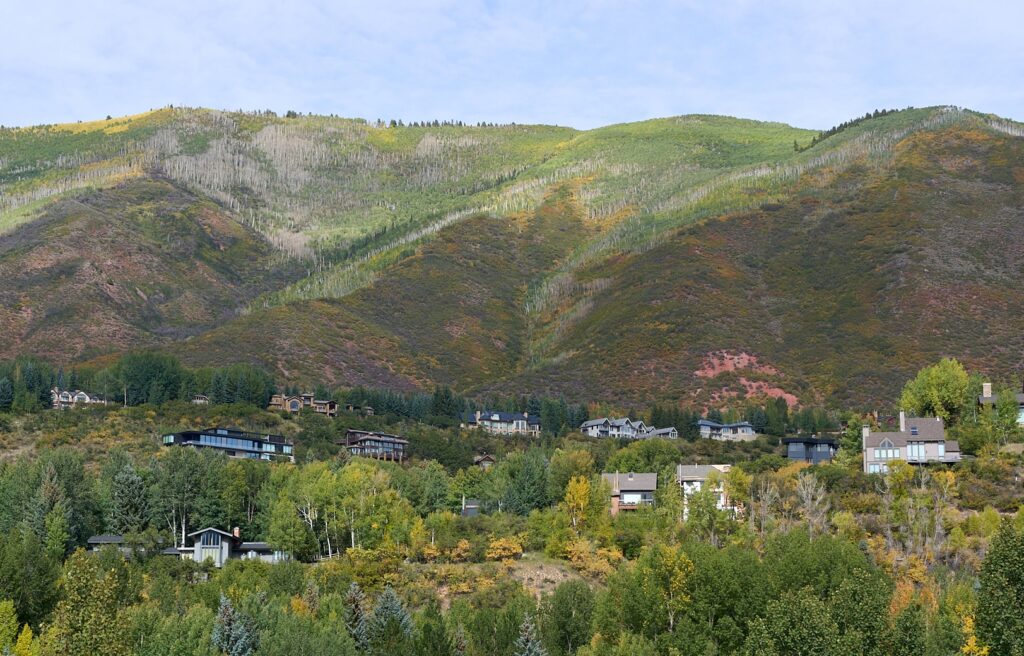Morning Birding at Rock Bottom Ranch Species List | August 20, 2019
ACES Staff
August 20, 2019

Tuesday, August 20, 2019, 7:30AM – 10:30AM
Weather: Sunny
Location: Rock Bottom Ranch
| Species Identified |
| Canada Goose Mallard Wild Turkey Rock Pigeon Eurasian Collared-Dove Black-chinned Hummingbird Broad-tailed Hummingbird Great Blue Heron Turkey Vulture Osprey Bald Eagle Belted Kingfisher Lewis’s Woodpecker Peregrine Falcon Western Wood-Pewee Plumbeous Vireo Warbling Vireo Woodhouse’s Scrub-Jay Black-billed Magpie Mountain Chickadee House Wren American Robin European Starling Cedar Waxwing Lesser Goldfinch American Goldfinch Song Sparrow Red-winged Blackbird Yellow Warbler Black-throated Gray Warbler |
Comments:
A flock of wild turkeys greeted us near the parking lot at Rock Bottom Ranch as we arrived for Morning Birding. The outing was characterized by birds being in slightly unusual places or habitats, a sign of birds letting go of breeding territories and moving more freely among habitats as various foods become available during the late summer when wild foods are abundant. We noted the absence of swallows today, another sign that migration is underway for the species that leave early. Black-throated gray warblers and plumbeous vireos were feeding in cottonwoods along the Rio Grande Trail, a nice surprise but not altogether unexpected with extensive pinyon-juniper woodlands nearby on the slopes of the crown area. We were thrilled to catch a good look at a peregrine falcon that flew over. Field marks that helped us clinch this ID were the uniformly fine barring of the belly and undersides of wings, the large falcon body structure including pointed wingtips, and the bold black markings on the face. These birds can be difficult to identify because they are usually seen in fast flight for a fraction of a second, but we had the luxury of watching this one fly relatively closely and at an angle which showed part of the side of the face. A question came up about how birds change the color of their bill seasonally, based on seeing a starling whose bill had turned dark and was showing the spangled plumage of a freshly molted starling. David Sibley had an excellent essay on bill color, and he explains that the living cells beneath the thin, outer layer of translucent keratin change color with seasons in certain bird species. Yellow pigments in the bill are produced by carotenoid compounds, the same pigment compounds that produce yellow (and orange and red) coloration in feathers. Enjoy the excitement of fall migration through the next couple of months, and join us on Tuesdays for Morning Birding! Check ACES’ website for the fall schedule.
~ Rebecca Weiss, ACES Bird Guide
Photo by Dale Armstrong
Related Content

This Squirrel Appreciation Day, Celebrate Marmots!
Learn More
RFV Phenology: Green is out, yellow is in! Or is it?
Learn More